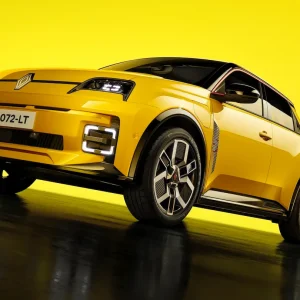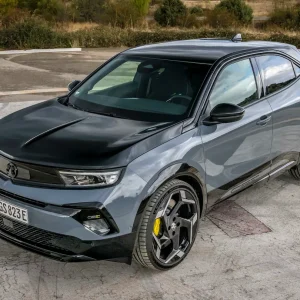If the Government really wants to think long-term, taking humans out of the driving equation is the real answer – the fleet cost benefits would be huge
News this month that Nissan has developed an ‘Eco pedal’ that stops harsh acceleration by pushing the pedal back towards your foot to reduce emissions could be seen as yet another nail in the coffin of free driving.
Yes, it’s pre-production and yes, the driver can decide to turn it on or off, but the firm is making it.
As a real world mpg-boosting, emissions-reducing measure it’s hard to argue against. Nissan is claiming its world-first tech “could improve fuel efficiency by 5-10% and be introduced as early as next year”.
Alongside the recent proliferation of driver aids such as intelligent cruise control, lane assist, park assist and collision mitigation braking it would seem logical that one day – some experts say by 2050 – human safety decision-making of any kind behind the wheel will be deemed ‘too dangerous’ and thus made redundant.
Leaving planet saving and self-preservation to humans is problematic. We’re notoriously easy to distract, bad at doing what we know is ‘best for us’ and even worse at ‘fessing up to our human frailties: “Of course I want more miles per gallon but I also want to get home quickly right”; “I’m very good at driving fast, it’s the other people making mistakes you’ve got to watch.” You know how the pub arguments go.
And think of the work you could ask/expect your fleet drivers to do if a ‘virtual robot’ was at the wheel of your business vehicle? Your sales reps could send emails and make phone calls in safety, and ready their pitches to potential clients on the way. They’d be less stressed, as would the vehicle’s engine, and the car would never get into accidents, as car-to-car communication would avoid them.
The very real direct and indirect costs of the current 1.2 million traffic deaths per annum could be ploughed back into research and development and motor insurance premiums would plummet.
Vehicles that drive themselves are not as far-fetched as you might think, either. The US Defense Advanced Research Projects Agency (DARPA) already runs a ‘Grand Challenge’ competition with big prize money to attract the brightest minds in the world to create autonomous vehicles for supplying the armed forces to perform reconnaissance. They’ve already had some success in desert testing. The idea of making them mass market on public roads is a logical next step.
Oh yeah, and they’d be two other big plus points: 1) Some of the more annoying driver training companies would have to find something else to get sanctimonious about and 2) There would be no more speed cameras and their associated fines. Welcome to the future, where do I sign?





